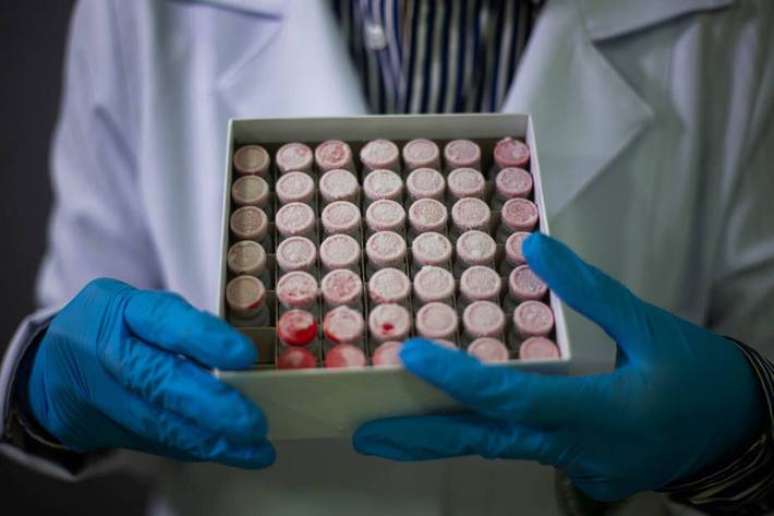A promising example of so-called advanced therapies, CAR-T cell treatment costs around R$2 million
In September of this year, the National Health Surveillance Agency (Anvisa) has authorized clinical research with medicines based on immunologically modified cells, called CAR-T. This therapy genetically alters the patient’s defense cells (T lymphocytes) and returns them to the body in large quantities to attack cancer cells. The study is conducted by the Fundação Hemocentro de Ribeirão Preto (Fundherp), at the University of São Paulo (USP), in collaboration with the Butantan Institute.
The technique, which was the subject of one of the panels of Health and Wellness Summit 2023event organized by Estadao, has proven effective in the treatment of some types of blood cancer and, in a preliminary phase, has already been responsible for the complete remission of some Brazilian patients. A well-known case was that of Rio de Janeiro publicist Paulo Peregrino, who after 13 years of treating lymphomas, saw tumor cells disappear from his exams after 30 days of treatment with CAR-T therapy.
Now, 81 people will have the same opportunity through the study. “We are living a revolution. Effective results for some types of cancer can be extended to the treatment of all types”, celebrates Dimas Covas, director of Fundherp.
“The fight against solid tumors is not yet a reality, but there is a great promise deriving from this cellular modification”, says José Mauro Kutner, medical director of Hemotherapy and Cellular Therapy at the Israelite Albert Einstein Hospital, which also carries out experiments with CAR-T.
Dozens of these clinical trials are underway in Brazil with the support of public funds. The expectation is that, in the future, CAR-T therapy will be incorporated into the Unified Health System (SUS). Today the cost of treatment per patient amounts to approximately R$2 million, which makes it difficult to apply on a large scale, as well as constituting an obstacle in the private sphere. “The way to make it cheaper is to join forces between the public and private sectors”
More resources and a decrease in patents, added to the growth of the national biotechnology industry, will inevitably reduce costs, given the greater production volume”, estimates Kutner, citing the work of the Brazilian Society of Industrial Research and Innovation (Ebrapii), a organization social organization that serves as a financial bridge between various departments of the federal government and technological research institutes that aim to innovate in the sector.
This fusion of science and industry requires keeping talent in the country, but with hybrid training. “Because we cannot fully develop the technologies, we have to take shortcuts: encourage people to work in the United States, in Europe, absorb this knowledge and return,” suggests Covas.
According to him, only massive investments in technology will be able to reduce the pharmaceutical industry’s great dependence on imports. “The first commercial registration of a CAR-T took place in 2017, in the United States. In Brazil, the first treatment took place in 2019. We have mastered the technological cycle, the problem is to transform it into a product”, he explains.
“We need to discuss what to do so that an innovation does not remain on the shelf. It is important that all Brazilians have access to it. The industry has the social role of ensuring that the progress of science is reversed to the benefit of the patient”, reflects Lenio Alvarenga , medical director of Novartis Brazil.
The economic concern is justified, since the so-called advanced therapies are developing on several fronts, in addition to that of oncological diseases, and with costs even higher than those of CAR-Ts. Promises of cures not only for rare diseases, but also for chronic problems such as Alzheimer’s and Parkinson’s. Another front that fascinates a significant number of specialists is tissue engineering, which regenerates organs and tissues starting from biomaterials developed outside the body.
A differentiator for Brazil in this advanced therapy scenario is the genetic diversity of its population. “It’s a very promising field of research,” Kutner says of Einstein. “Our participation has increased in global studies and our data are considered by international agencies to be suitable and of high quality,” emphasizes Alvarenga.

Source: Terra
Ben Stock is a lifestyle journalist and author at Gossipify. He writes about topics such as health, wellness, travel, food and home decor. He provides practical advice and inspiration to improve well-being, keeps readers up to date with latest lifestyle news and trends, known for his engaging writing style, in-depth analysis and unique perspectives.








